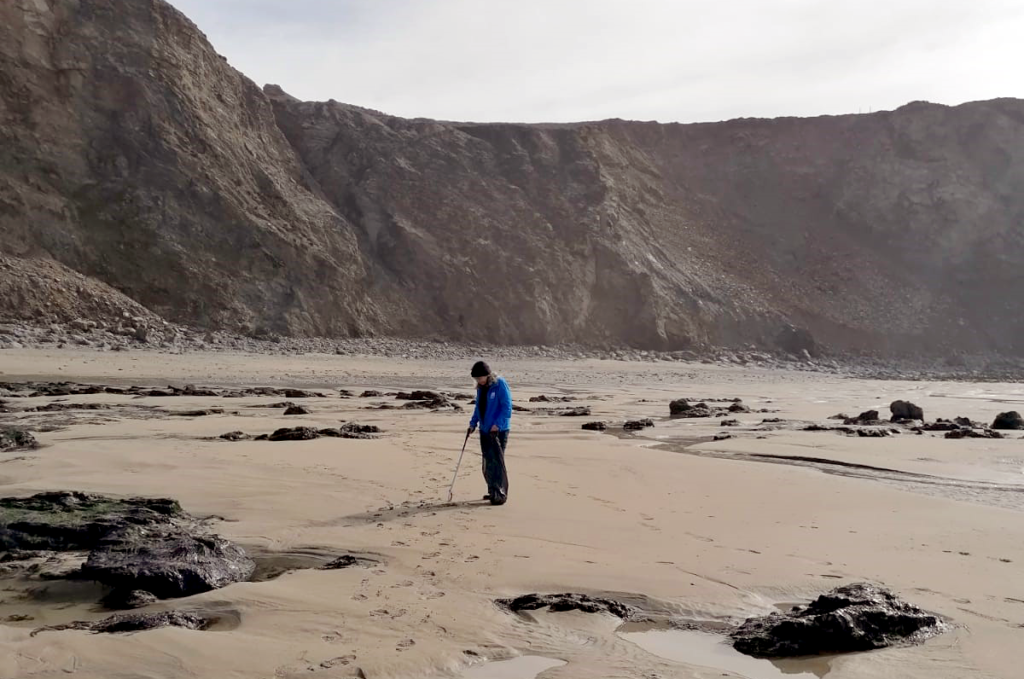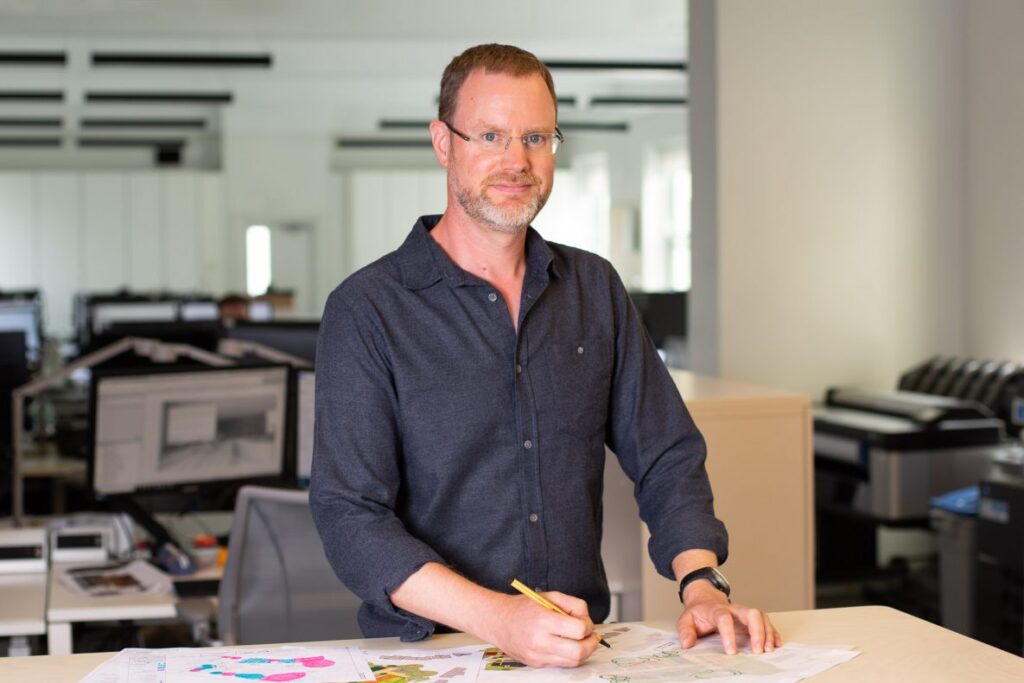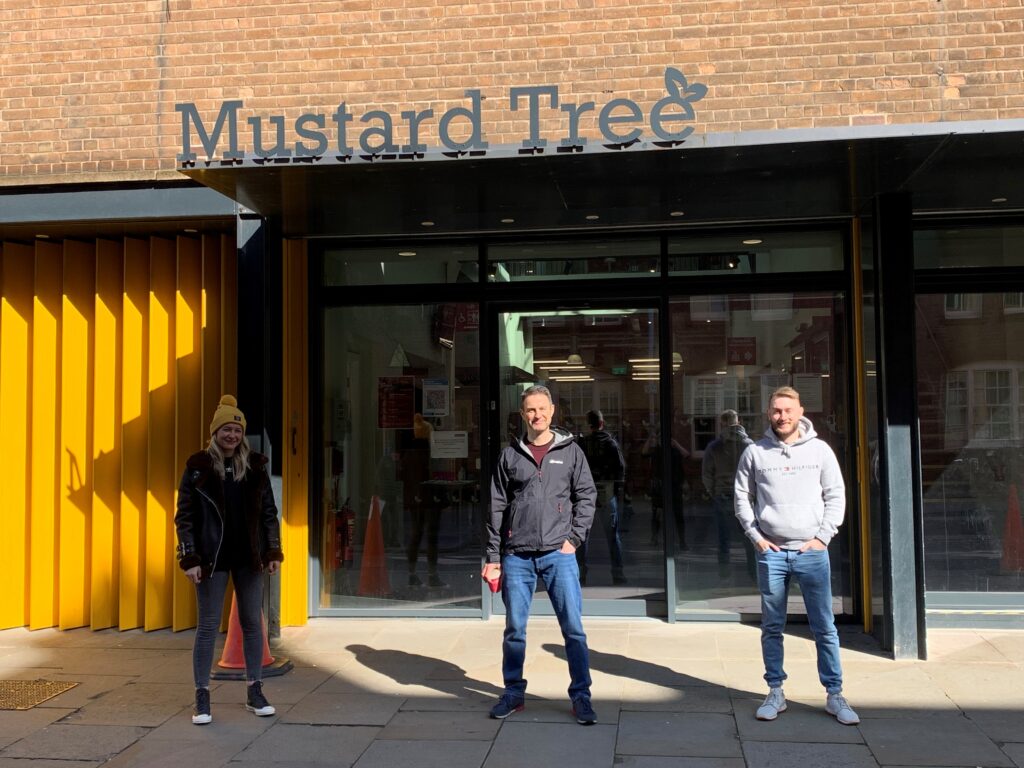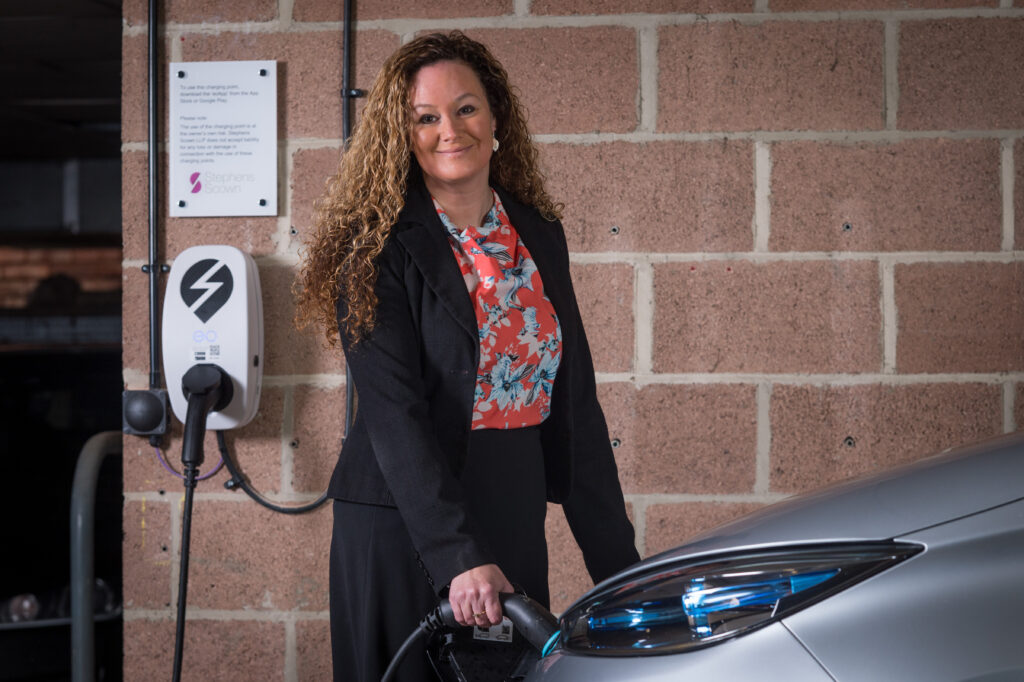11 Jun With the much-publicised G7 this weekend in Cornwall, how can the construction industry reduce its impact on the planet?

Conservative estimates state that the construction industry is responsible for more than 30% of the world’s natural resource extraction and a quarter of the solid waste generated. The built environment is also one of the biggest contributors to global emissions: research conducted by the World Green Building Council explains that the construction and operation of buildings accounts for 36% of global energy use and 39% of energy-related CO2 emissions.
With construction touching virtually every aspect of our lives, it arguably has the biggest cultural, ecological and commercial impact on the places where we live, work, learn, care, play and travel. For forward-thinking businesses, these challenges around sustainability in construction have rapidly become new opportunities to be progressive. This is a crucial moment for our sector, and we have the opportunity to be a transformational influence if we act now. Not only advising our clients on how they can build in more sustainable ways but how we influence the future of the construction industry through governance, social value and sharing sustainable business practices.
We have spoken with Stride Treglown – an employee-owned architectural practice and a Certified B Corporation®, Stephens Scown – a South West based award-winning legal firm as well as our own team. We discussed how they are undertaking the challenges of sustainability, where they see the future of sustainable business practices, and how the construction industry can use business as a force for good.

Robert Delius, Divisional Director and Head of Sustainability at Stride Treglown.
It sounds obvious, but the environment is a major stakeholder for all of us when it comes to ‘building back better’. We must bear this in mind when we think about the part we all play in a clean recovery.
In April, Stride Treglown, a top 10 UK architectural practice, became carbon neutral. This was the result of many years’ work and required commitment from all areas of our business, joining to drive down our emissions in a sustainable and responsible way. Importantly, we took great steps to reduce emissions first and offset last, so that changes are both enduring and genuinely transformational.
It sounds like a big undertaking, and it was, but it is worth saying that a lot of the gains were made incrementally.
Significant reductions in our energy consumption – including refurbishment of offices with incorporation of renewables, changing to low energy lighting and lower energy office equipment – were implemented over many years, and we gradually transferred most of our utilities to green tariffs.
Travel accounts for a significant proportion of our carbon footprint, with most of it relating to project and interoffice communication. The shift to remote working has shown that we can reduce this impact. To encourage low carbon car travel, we implemented an electric car salary sacrifice scheme.
There are many other initiatives at play in how we run our business as a force for good. Our B Corp, UN SGDs, and Social Value frameworks are key business improvement pathways, which will continue to guide our social and environmental impact.
As designers, we also have a huge opportunity to nurture and positively transform the environment through our work.
We have been shaping sustainable projects for decades. Late last year we celebrated ten years of our self-build Cardiff office, which was the first building in the UK to achieve BREAAM Outstanding at design stage. In Cornwall, projects like Bosence Farm Drug Detox Centre and Heartlands demonstrate how sustainable practices can be fully embedded in both new build and complex heritage projects.
We are committed to strengthening our working practices to create architecture and urbanism that has a more positive impact on the world around us. Recent times have focussed our resolve to use our position to promote, in the words of Architects Declare, ‘a paradigm shift in our behaviour’. This requires us all to push the envelope.
Our Passivhaus (Passivhaus buildings provide a high level of occupant comfort while using very little energy for heating and cooling) and low carbon design expertise has seen us shape significant projects like Gwynfaen in South Wales and the University of the West of England’s Low Carbon Residences, one of the world’s largest university Passivhaus schemes.
Through Passivhaus, Life Cycle Assessment or Building with Nature methodologies we can measure the quantitative impact of projects, enabling us to design demonstrably higher quality places for people and the planet.
By engaging and collaborating with the wider industry, we have an opportunity to challenge conventionality and influence future legislation to ensure a greener future for all.

Ward Williams Associates
At Ward Williams Associates we are dedicated to working towards benefitting People, Places and Planet through our business practices.
This commitment to using business as a force for good was solidified in 2020 when we became the first chartered surveyors in the world to become a Certified B Corporation®. Certified B Corporations® are companies that are committed to using business to build a more inclusive and sustainable economy. B Corps™ are rigorously tested to ensure they met the highest standards of social and environmental performance. Our certification reinforced our existing and future commitments to uphold the highest standards of financial, environmental and social principles.
To put into practice our commitment to ‘People, Places and Planet’ we are working with the University of Exeter MSc Global Sustainability internships for a Net Zero Carbon Action Plan for our business. This approach aligns with the wider work being undertaken across B Corps around the world with a focus on Net Zero 2030 ambitions, as well as the UK’s key role in 2021 in driving down carbon emissions.
From June through to July this year, we will be taking on two internship placements who will be working on creating an Operational Carbon Review for the business. The purpose of which is to baseline our current situation and set out a clear plan of action as to how we can all play our role in reducing our carbon emissions as a business. The MSc internship students will be working alongside the team to develop the research and evidence to outline several interventions we can make within the business to reduce our carbon impact.
We want to champion staff engagement when it comes to sustainability and allow our team to lead the way on ideas for improvements within both the business and the industry. Last year we formed our WWA B Corp Working Group, a forum where team members across our regional offices can collectively meet to discuss the future of our sustainability goals and set actionable outcomes. We have already successfully launched several initiatives from this group including our volunteering days to benefit and care for our local communities, reducing our plastic waste in offices through our reusable Hydroflasks and launching our first WWA Employee Cycle Scheme to help reduce the carbon footprint of our daily commutes.
Future goals for the working group and our team include the development of a Project Sustainability Guide for all of our staff to help in advising our clients on opportunities to enhance the sustainability of their projects from an early stage.
Early in 2021 we also launched our Mental Health First Aiders initiative to ensure we are doing all we can to help protect the mental wellbeing of our teams, to us sustainability is just as much about caring for our people as well as our planet. Our MHFA’s (Mental Health First Aiders) have been trained in how to recognise mental health problems and are on hand to provide support to employees when they need it most, through listening and signposting to further assistance.
But this is just the start! We strive to make sustainability the new normal, to further embed it in our culture, with the aspiration that the ethos of using business as a force for good will continue to permeate through the construction industry.

Sonya Bedford – Partner and Head of Energy Stephens Scown LLP
In the past, law firms have not always been synonymous with sustainability but Stephens Scown, with its heart in employee ownership and shared benefits for all, has a good track record and is growing its low carbon status daily.
Running a low carbon business comes from both our clients and our staff. We support our clients in their sustainability journeys and help staff be as low carbon as possible at work. From the electric car charge points in the garage to sourcing sustainable food for events, Stephens Scown is now measuring all its activity in its journey to becoming a zero-carbon firm.
Some of the activity undertaken by the firm to reach net-zero by 2030 is:Recording our carbon footprint of Scope 2 Emissions since March 2018;
– Zero waste to landfill policy supplemented by onsite recycling of crisp packets;
– Undertaken extensive renovations in Exeter to reduce energy use (Double Glazing and Bathroom refits);
– Colleague Campaigns;
– Paperlite Scheme within teams;
– 88% of stationary is Eco Friendly;
– Installed EV charge points.
In addition, we have worked with our clients and run a series of zero-carbon sessions highlighting work that can be undertaken in many of our key sectors: housing; tourism; energy; mining and minerals and corporates.
Our renewable energy team have delivered over 300 solar farms for clients, we acted on the first wind farm in England and the first solar farm and now work with many clients and communities in delivering smart low carbon energy infrastructure.
Having this innate knowledge of sustainability and zero-carbon energy has allowed us to be more knowledgeable in our own business, and we are currently sourcing a truly green supply of electricity and looking at more ways to ensure our business sits lightly on the planet. Changing behaviour is required to get to zero carbon, no more flying to conferences or printing large documents! Stephens Scown embraces the challenges and believes that getting to zero carbon will not only be better for the planet but better and healthier for staff and clients.
Collaboration and the sharing of best practices is key to developing long term solutions to the challenges around sustainability in the construction industry. We need to push ourselves and encourage everyone we work with to improve their impact on the triple bottom line.
We look forward to seeing the progress made over the coming months and years from both Stride Treglown and Stephens Scown as we all strive to use our business as a force for good.
If you’ve been inspired by the G7 this weekend to look at how you can do business more sustainably we encourage you to get in contact. Whether you have best practices you would like to share with our audience or would like to work with us on a sustainability project, please contact us here.


